The Best Gadgets for Your Home
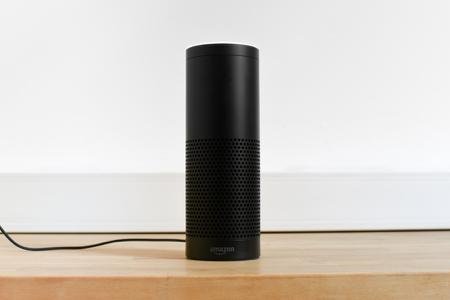
Now that we’re in 2017, technology is becoming more and more futuristic. Smart appliances have inundated homes across the United States. With all of the various options on the market today, there’s no excuse to not have at least something in your home that makes it better, smarter, or more efficient.
You could easily spend thousands of dollars upgrading your home with the latest and greatest gadgets. So, which ones should you choose? Read on to learn more about the best gadgets for your home.
Amazon Echo/Echo Dot
The Amazon Echo is a must-have central speaker for your home. Its virtual assistant, Alexa, can listen to your commands and assist with a variety of tasks. Alexa can be used as a timer or exercise instructor. She can also play music and reads you news, sports scores, weather, and traffic reports.
Alexa also has a variety of skills that you can add from the app. She can play games, offer trivia, and even make animal sounds. By buying the add-on features, you can use the Echo to control the temperature in your home, turn on lights, and more.
The Echo Dot was released just a few months ago. Smaller and sleeker than the Echo, the Dot offers a less powerful speaker but offers much of the same functionality.
SkyBell HD Video Doorbell
Today’s doorbells are much fancier than the ones in the past that simply made a chiming noise and alerted homeowners that someone was at the door. Now, you can see who’s at your door – even if you’re not at home – with the SkyBell HD Video Doorbell. This doorbell offers live streaming video in 1080p resolution, as well as a straightforward app interface.
The SkyBell HD Video Doorbell is easy to install if you hardwire it. Less expensive than other models, this product is a great choice if you’re looking for a smart doorbell with some offerings.
Chamberlain MyQ Garage
With Chamberlain MyQ Garage, you can open and close your garage door with just a touch of your smartphone or tablet. No longer will you have to fumble around for your garage door opener in the dark or while distracted by kids. Chances are, you won’t even have to replace your existing door. Chamberlain MyQ Garage is designed to work with most garage doors manufactured after 1993. The company plans to add more benefits soon, like the ability to automatically open when you’re approaching the door.
Should I Get a Wireless Video Security System?
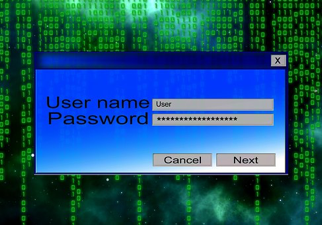
According to crime statistics for 2015, property crime resulted in losses of $14.3 billion across the United States. The reported stolen property value was estimated to be around $12 billion, regardless of the fact that property crime actually decreased. For many individuals, these kinds of losses are a result of property and possessions that are not appropriately protected or whose systems are not up to par.
A wireless video security system is one of the solutions to obtaining greater security. These systems make monitoring much easier and have the ability to prevent damage or theft before they even occur.
This kind of security is often a consideration for many people, especially those who are in high-theft areas or who have a lot of assets that they would like to protect. Because of their popularity, security systems have seen a lot of great upgrades and package options; this ensures that every property owner has the ability to choose options that are attainable and affordable for their needs.
If you’re thinking about investing in a wireless video security system, there are a few things you might consider to help you make an educated decision.
Location
Location has a lot to do with the level of security a property has. If you know that your property is in a high-theft area, chances are you’ll want to get some form of security to ward off theft before it even occurs.
Properties that are in low-traffic areas may also need added protection. Not only do low-traffic areas have less prying eyes to spot burglars, but homes that are further from downtown cores will likely take longer to reach for police or firefighters.
Should I Get a Wireless Security System?

As a business owner, it makes complete sense to want to take every precaution you can to protect your valuable assets. The chances are good that you’ve put significant investments of time, effort, and money into building your business empire. Any threats that could potentially wipe out all of your hard work are worth avoiding at any cost.
Insurance Is Great but Security Protocols Are Better
All responsible business owners realize how important it is to have adequate insurance coverage on their company assets. If something bad should happen to the enterprise, business insurance provides a safety net to recover losses stemming from fire, theft, and other types of catastrophes that can cripple your business’ capacity.
Security systems, on the other hand, are designed to help mitigate losses before they happen. Additionally, many insurance companies commonly offer discounts on business insurance premiums if the company they’re insuring has a security system installed on premise.
Regardless of whether you choose a wired or wireless security system, both work extraordinarily well as an early detection system for dangers including fire, theft, intrusion, and unauthorized access within your commercial business.
What Types of Events Do Security Systems Detect?
Today’s modern security systems are more comprehensive than ever before in detecting threats and dangers to your organization. Both wired and wireless security systems can detect:
Problems with Home Technology and Security
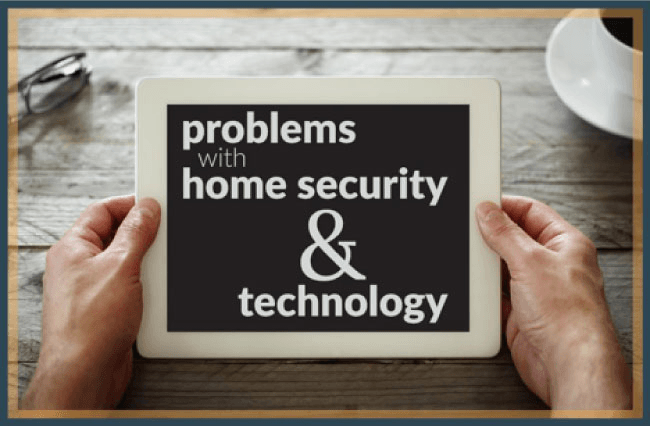
Go into any home in today’s world, and you’ll likely find some form of technology. Whether it’s a smartphone, a baby monitor, surround sound speakers, or a security system, we now rely heavily on technology to help us complete tasks, to entertain us, to keep us safe, and so on.
With the increased intelligence of technology, we’re able to do things that were never thought imaginable. While this has taken us to new heights in the world of discovery, the growing intelligence of technology has also become increasingly involved in our personal lives. Not only do we use technology to call friends, plan meetings, and send files, but we also use our phones, laptops, and iPads to hold documents, store passwords, and track our locations.
In the grand scheme of things, it seems that the convenience of technology is too good to give up for a little added safety. However, the more we rely on technology, the more our protection is weakened. If you’re curious about how home technology is having an effect on our level of protection, the following are some of the problems that arise with home technology and security.
Preventing Home Invasions – Security Tips
Do you know what to do around your home to help prevent burglaries? There are certain preventative measures that you can do around your home to help it become more burglarproof and to decrease your risk. These tasks are minor items that you should be doing to decrease the odds of your home being broken into.
Answering the door:
- Do not open doors to total strangers.
- Install peepholes and talk through the door.
- Home invaders pose as delivery people, public workers, or people in distress.
- Always ask for credentials and do not open the door unless you get phone numbers to call their superiors. If someone is in distress, announce through the door that you will call the police for him or her.
- Teach children to never answer or open a door without an adult at the door with them.
- Do not open doors until you are satisfied that it is safe to do so. Do not assume you know who is at the door.
In and around your home:
- Invest in a well-designed security system for your home including a backup radio or cellular system in case the phone line is cut.
- Invest in solid doors and good quality locks including deadbolts on doors and windows. This includes sliding glass doors as well. For door walls, use metal rods at the base of the door wall to prevent unauthorized entry.
- Reinforce all doorframes and all doors. Don’t trust screen doors to keep intruders out. Do not use door chains. Use strong devices that allow you to open the door a couple of inches. Use long screws to attach the devices to the doorframe securely. Whenever you go outside, lock the door and take the key with you even if you are stepping next door or mowing the back yard.
- Replace basement windows with glass block windows.
- Don’t put valuables where they can be seen from the window, especially items that can be easily carried.
- Don’t keep large amounts of cash or really valuable jewelry around the house.
- Leave more than one interior light on at night.
- Engrave all valuables such as stereos, microwaves, video cameras, with your driver’s license number. Videotape the contents of your home. Keep the video and the list of all valuables in a safe place such as a safety deposit box.
- Consider a second phone line or cell phone in your bedroom. Burglars often cut a phone line or remove a telephone from the receiver when they enter a home.
Outside your home:
- Keep house numbers easy to see in the event of emergency.
- Invest in motion sensor lighting that are installed out of reach.
- Be sure your garage door is secured. Do not leave it open when you are away. An empty garage broadcasts your absence.
- Leave front and back outside lights on every night of the year.
- Always double check doors at night and lock all windows.
- Don’t leave ladders outside.
- Keep any tools that could be used to break in your home safely locked away in a garage or shed.
- Trim shrubbery and other landscaping to eliminate any hiding places. Plant thorny bushes under all windows.
- Don’t hide a spare key under the doormat or under a flower pot.
- If you don’t have a car, have a neighbor park their car in your driveway.
- When leaving messages on answering machines, you should have a male voice and indicate there are multiple people living there, even when there isn’t. For example, “We’re not able to come to the phone right now, please leave a message.”
When leaving town for a period of time:
- Program interior lighting to come on using timers at various times of the day or night.
- Be careful of the content of announcements for such things as funerals or weddings announcing it will be held out of town during a specific time frame.
- Call your local police department or precinct to see if they would be willing to pass by your home at different times to show there is a police presence.
- Discontinue mail and newspaper service while you are out of town.
- Forward all mail if you will be gone an extended time.
Most Common Times for Home Burglaries
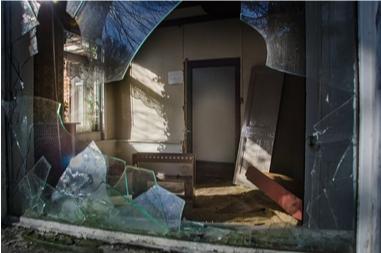
The home you live in should be your escape; it’s a place where you can relax and enjoy yourself while feeling safe and secure from the busy, outside world. When we purchase a home, we always want to be able to protect the people and possessions within it, which means doing everything we can to guard it.
To protect our homes, there is a wide variety of tools and tricks we can use to deter burglaries and damage. Some of the most common options include home security systems, safes, exterior lighting, and guard dogs. Investing in these kinds of things can help to decrease the likelihood of theft in your home, as most thieves will look for homes that are less guarded and easier to enter.
For those who are thinking about investing in security for home properties, it may be helpful to know that homes without security systems are 300% more likely to be broken into.
For those who want to know more about home burglaries in the hopes of deterring them in their neighborhood, it’s important to know the common patterns of burglars and what to watch out for. According to home burglary statistics, about 30% of the 200,000 break-ins that occur every year in the U.S. take place through an open or unlocked window or door.
In terms of timing, burglars often have specific times that they like to strike homes. Further your protection by recognizing these times throughout the year and how you can decrease your chance of a break in.
Time of Day
Many people assume that burglars will more commonly break in during the dead of night; this assumption is usually because of the way the media has portrayed thieves. In reality, a large amount of the break-ins that occur take place in the middle of the day when most homeowners are out of the house. This means that the most common times for break-ins occur between 9 a.m. and 5 p.m. when residents are commonly at work and school, and burglars have more time to raid the property.
This is where integrated home security systems can really make an impact. Homeowners who use integrated security can access their security system from a phone or iPad and view any of their installed cameras even when they’re away from home. The 24/7 peace of mind makes being away from home much more comforting and keeps the home safe.
Is a Home Security System Beneficial?
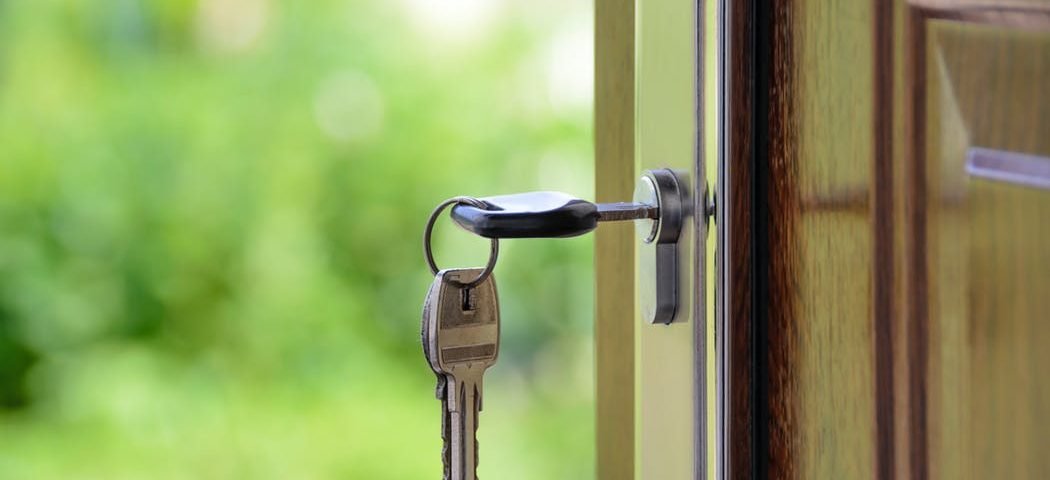
If your home holds your most prized possessions, whether those are people, pets, or things, then a home security system is a very smart tool to consider. While the idea of one may seem overwhelming, at first, these systems have gone through some major changes in the last decade that have made them smarter, yet simpler in so many ways.
If you are thinking about increasing the level of protection around your home, adding a second lock to the door may not be as effective as you’d hoped. Consider these benefits of home security systems to decide if this kind of protection is right for you.
Valuables Are Protected
How to Reset a Home Alarm System
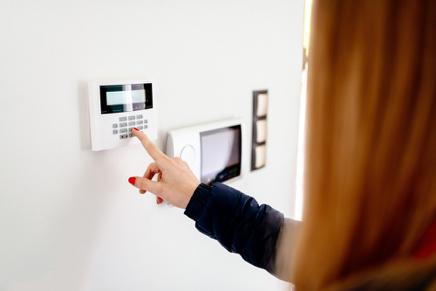
Security alarms are popular among homes in America, as 25% of homes have one installed. As crime is rampant in large cities across the United States, security alarms offer peace of mind to homeowners who want to protect their families and assets.
Many homeowners acquire an alarm system through a monitoring company. Once the company installs the system, the homeowner enters a commitment for a specific period of time. It could be six months, one year, or even longer. Once the commitment ends and the homeowner no longer wants to continue the service, the home alarm system can stay in the home. However, the company will no longer offer assistance – unless you’re prepared to pay a hefty fee.
This can be problematic if you ever need to reset your home alarm system. A power failure or battery issue can cause a system to be reset. This can also happen if a person buys a new home with no knowledge of the system.
Even if you never encounter any of these issues, you should reset your home alarm system regularly as a good practice. This will make it harder for criminals to know the correct code to break into your home. So, how do you reset your home alarm? Read on for tips to help you through this sometimes challenging process.
Cracking the Code
In order to reset your system, you will need to know the master code. If you have the instruction manual, it should be located there. If you don’t have it, you can still locate it but it will be more difficult.
You will need to gather information about your alarm system. Write down the manufacturer, model number, and serial number. You should be able to find this information on the alarm itself.
The next step is to conduct some research. First, you will want to check the manufacturer website. You can often find owner manuals there. These manuals may have information that can help you reset your alarm.
If you can’t find anything helpful from the manufacturer, do an Internet search to see what you can find. For example, use keywords like “reset alarm (manufacturer name, model).” You might even want to add the serial number so you can get information specific to your alarm system. You should be able to find a variety of resources.
There are sites dedicated to specific manufacturers as well as forums and community boards where other homeowners can share information and answer questions. You might be able to post your question here and, we hope, receive a quick response.
How to Reduce the Chance of a Break-In
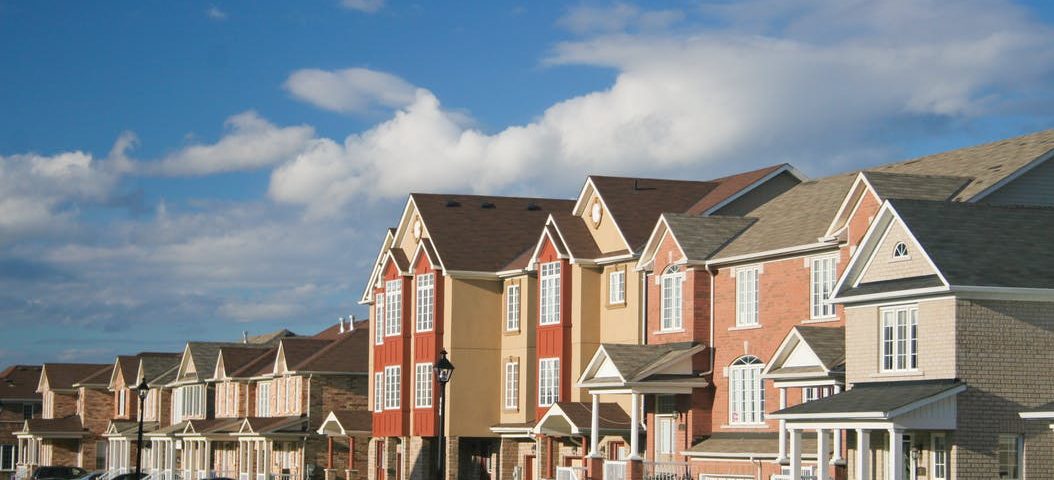
According to reports, residential break-ins occur once every fifteen seconds, with the average homeowner losing approximately $2,230 worth of possessions. Unfortunately for most homeowners, their homes are not properly protected, and thieves usually get away because of it.
Even if you think the area you live in is safe, it’s been reported that many burglars live close by and often try to learn the regular routines of the homeowners whose home they’re interested in. Regardless of your location or relationship with fellow neighbors, there are some precautions you should take to keep your home safe.
While it’s not easy to capture those people who are attempting to break into your home, it can be much easier to protect your home and to stop the break-in before it occurs at all. To learn how to reduce the chance of a break-in on your property, consider the following tips:
1. Start or Join a Neighborhood Watch
How to Keep Your Home Safe: #1 Guide Online

Our homes are meant to be our sanctuaries; the places we can go to relax, unwind, and enjoy ourselves. Not only are they a place to call our own, but they also keep us safe and protected from the dangers of the outside world. For most of us, feeling safe is one of the top priorities when it comes to choosing a home. Any kind of uncertainties when it comes to protection should not be tolerated, especially in the place where you and your loved ones should feel their safest.
There are many things you can do to improve the safety of your home, ranging all the way from small at-home projects to investing in the latest technology. If you want to feel comfortable and secure in your home, consider this guide on how to keep your home safe.
How to Keep the Office Safe
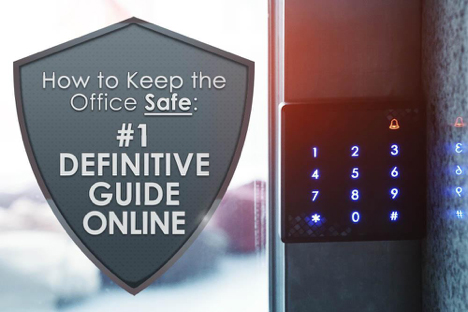
Office work isn’t usually associated with dangers – after all, what’s the worst that can happen to someone working on a computer all day? While office workers don’t face the same dangers that factory and construction workers do, the work environment is still rife with hazards thanks to slippery floors, malfunctioning equipment, and poor lifting techniques.
Besides these issues, there are also security risks. Criminals, customers, and even employees can make an office unsafe. Fortunately, there are ways to mitigate these risks and make the workplace a happy place to be.
There are many ways to prevent accidents and injuries and keep your office running smoothly. Here are safety tips that all employers and their employees should be aware of.
How to Choose the Right Home Security Company
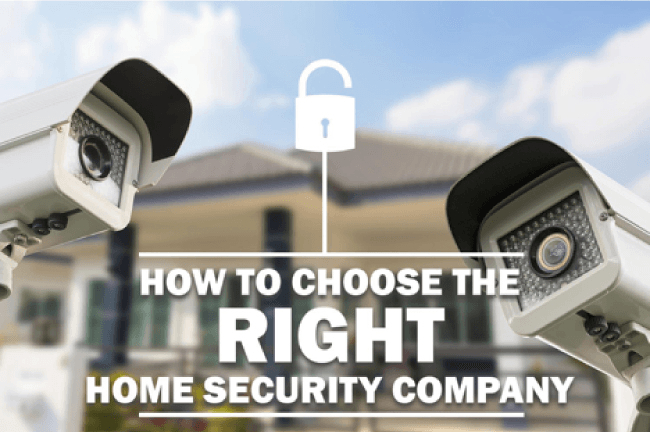
Choosing the right home security is an essential task that puts you on solid footing. These days, you have no shortage of companies from which to choose. What matters is that you understand what you’re buying and that the business you purchase from will be there for you. In a sense, you’re selecting a partner to help you reduce crime and fire damage. That’s why you need to pick the best. There’s too much on the line to go with home security companies with poor reputations.
The chances are good that you’ve worked long and hard to acquire all of your assets and belongings, so you don’t want to make the mistake of choosing a security company that doesn’t offer a stellar reputation, expertise, and high-level of customer service to fulfill your individual home security requirements. Further, the company should be knowledgeable and be able to answer all of your questions.
How to Choose a Home Security Company
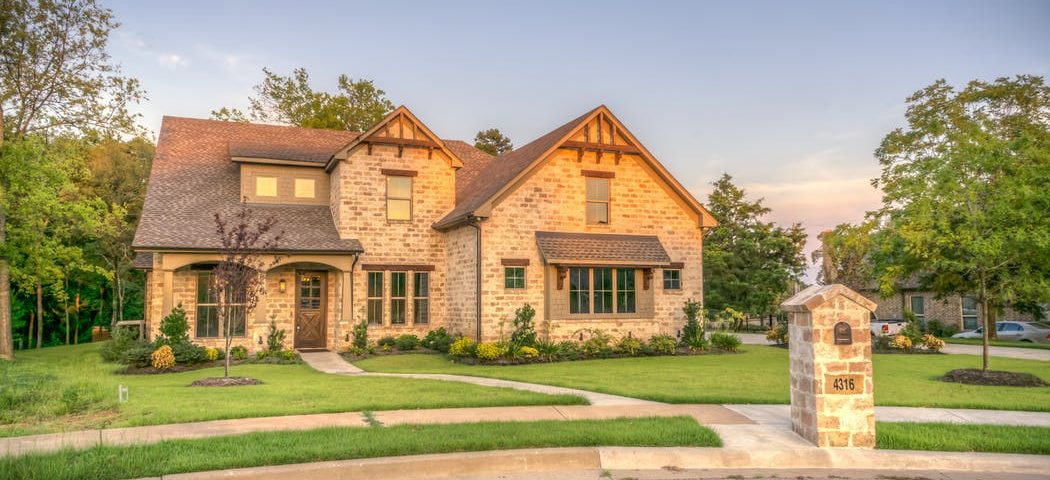
When it comes to home security, there is no better feeling than having peace of mind knowing that your investment is getting protected from theft and other potentially dangerous situations.
In the commercial security business, there are two types of people who buy commercial security services. Those are individuals who are taking proactive actions to guard against invasions and property loss, and those who have already experienced the pain and loss of these circumstances.
Regardless of whether you are taking aggressive steps to safeguard your belongings before an incident occurs or you’re a recovering from an incident, here are some helpful tips to help you choose a security company that’s right for you.
Does the Security Company Offer a Free Assessment?
As you can imagine, every security deployment is unique. The best commercial security companies offer a free assessment to determine the costs associated with installing and monitoring your security system. Further, their representatives should be able to make recommendations for the services to help home and business owners meet their security objectives.
In some cases, they may even make suggestions that you can implement yourself to increase safety and security at your property. Things they might suggest could include keeping bushes and hedges trimmed, reinforcing your existing lock system, fortifying door jams, and securing accessible windows. By working with you directly, they can make more accurate suggestions for securing your business.
How a Door Access Control System Works
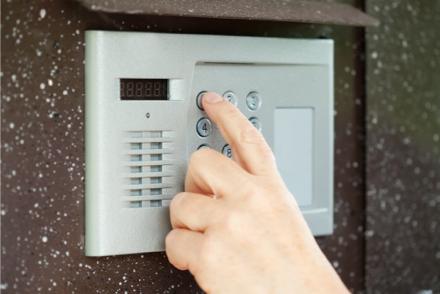
You may have heard of the term “access control,” but what exactly does it mean? Access control is a broad term that refers to the security of doors and alarm systems. These services allow companies to monitor and restrict entry into a specific area.
Door access control systems can keep inventory safe, secure intellectual property, and limit and restrict access to personnel. Property and employees are protected, and burglars are deterred, resulting in increased safety. With door access control systems, employers can track activity, reduce the risk of theft, and protect assets.
Door access control is used in a variety of industries, including banking, education, finance, government, healthcare, religious services, industrial, life sciences, military, retail, utilities, and commercial buildings. Nearly every business can benefit from the use of a door access control system to boost security and increase peace of mind.
How Does It Work?
Door access control systems operate off of an electronic locking device. This device can be placed on an interior or exterior door. In order to enter the building or room, the user must present the appropriate credential – most likely a key card. The key card is swiped on a card swipe reader or placed over a card reader. In some cases, a code may be required, which means that the user will be prompted to enter the correct code on a keypad.
Card readers are recommended for areas that require a high level of security. For example, rooms that have money, collectibles, or other highly sought-after assets will benefit from card readers. Readers are also good choices in areas where you’ll have to re-key the lock often. Cards are easy to program, so, if there is a lot of turnover at your company, card readers are ideal.
Door access control systems use what is called a controller. Controllers tend to operate around 32 control points, but larger ones can handle more. While each controller has its own software, a server runs the master software. Some servers may run hundreds of controllers. If there are several buildings, each one may have its own server.
Besides allowing and restricting access, door access control systems can be used with video and alarm systems so you can see who is entering a building and view any event that would cause the alarm to sound.
Features depend on the system you choose, but most can print badges, deactivate cards, and replace lost ones. You can also manage cardholders and specific areas, which is helpful if you lose or gain employees or if a current employee loses or gains access to a certain area.
Do I Need a Fire Security System in My Business?

Fire security is not a fascinating subject for many people. Most days, the thought of a fire sweeping through your business doesn’t cross your mind. However, fires can and do happen all the time. Mitigating this threat is a fantastic idea, and it is one that helps you save substantially on your business insurance.
Not only is a business fire terrifying, but the dollar amount of damages are also often incredible! Even though you may feel it’s not likely you’ll experience your office burning; it’s a savvy move to insure against it.
Zoning Often Requires Fire Protection
Almost all businesses need fire alarms due to zoning regulations. That’s a minimum starting point in the battle against blazes. However, it’s worth considering the benefits of installing an entire fire security system. Compliance is a great reason to investigate how security monitoring and alert systems help your business.
The key is to purchase a system that handles all inevitabilities, and which is installed and monitored by professionals. Even though alarms and fire extinguishers are present at most businesses, they are inadequate for protecting the premises. They’re a start, but prepare yourself to go further to implement an effective program of fire prevention.
Fire Protection Brings Numerous Benefits
There is a slew of advantages for being active about fire protection. Certainly, your employees will appreciate your concern for their safety. That makes it easier to attract and retain talent! Not only that, but your insurance premiums will reflect your commitment to compliance.
Adding a sprinkler system has long been proven effective at controlling fires. You may not be able to prevent every blaze, but alerting the fire department and putting on the sprinklers can stop them from getting out of control. Any steps taken to prevent a fire from spreading are necessary. Once a fire takes root, it becomes nearly impossible to stop.
Systems Keep Getting Better and Better

